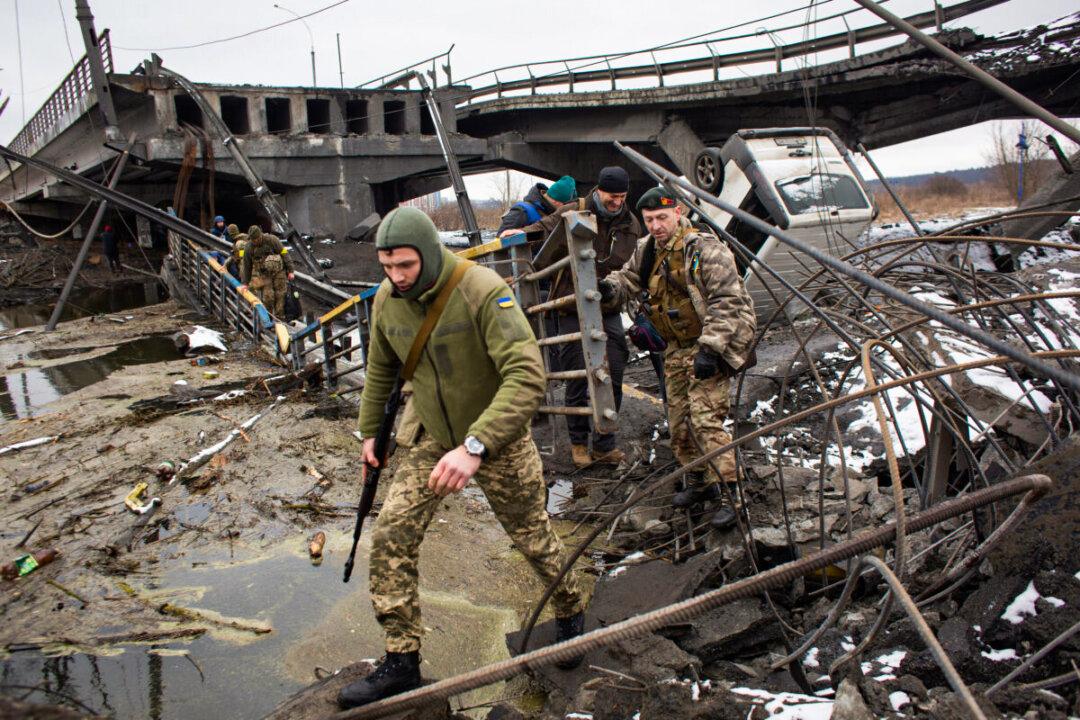Russia’s invasion of Ukraine could be a match that ignites a global conflict, where an emboldened Beijing and its proxies exploit the situation to act on their own ambitions, according to China analyst and author Gordon Chang.
“We didn’t think Putin was going to invade Ukraine. And so right now the world is a very different place, and we have to throw out our assumptions, and we have to start defending ourselves,” Chang recently told Epoch TV’s “Crossroads” program.






